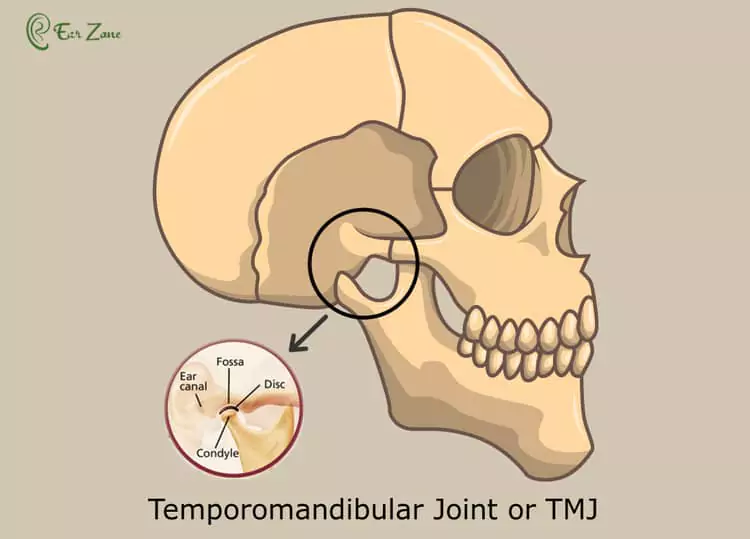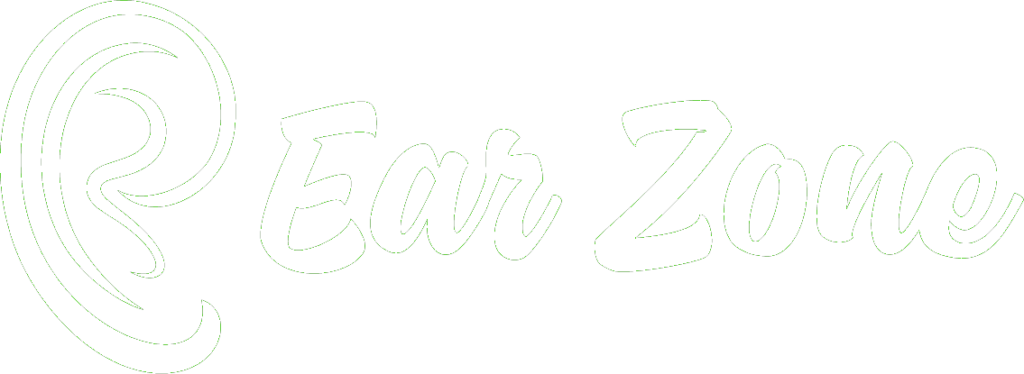If you are trying to figure out what’s causing your tinnitus, you might be surprised to learn that your temporomandibular joint or TMJ causes tinnitus. TMJ and tinnitus are often linked and could be the reason behind the buzzing, whooshing, and ringing sounds you have been hearing in your ears.
Although the TMJ is known to cause pain in and around the ear and difficulty in chewing, TMJ and ear ringing have a strong connection. Therefore, what does TMJ tinnitus sound like and how you can stop TMJ ear ringing? Read on for answers to all your TMJ and tinnitus related questions.
Table of Contents
Can TMJ Cause Tinnitus?
There is a close relationship between the jaw joint and tinnitus, a slightest imbalance in the temporomandibular joint can cause tinnitus. TMJ was the cause of tinnitus in 19% of participants in a study conducted by the Swedish Tinnitus Outreach Project.1
How Does TMJ Cause Tinnitus?
The temporomandibular joint or TMJ, is the joint that connects the temporal bone of the skull to the jaw bone, also known as the mandible. This joint is located on either side of your head, near your ears. The temporal bone also houses the middle and the inner ear. Due to its proximity, complications with the functioning of the inner ear can occur leading to tinnitus.

• TMJ Wear and Tear
The TMJ is a complex joint responsible for front-to-back and side-to-side movements during chewing. Similar to any other joint in your body, it can wear down over time. Misalignment due to wear can lead to TMJ that can cause tinnitus.
The muscles responsible for chewing are very close to the middle ear and the inner ear. If these muscles malfunction, it can lead to tinnitus caused by the TMJ.
• TMJ Ligaments
The temporomandibular ligament is connected to the bone in the middle ear. Any ligament issues can result in TMJ tinnitus.
• TMJ Nerves
The nerves connected to the TMJ are also connected to your auditory nerves. Any nerve-related issue can send unwanted electrical signals to the inner ear, causing TMJ ear ringing.
What Does TMJ Tinnitus Sound Like?
TMJ tinnitus is typically associated with high-pitched ringing, clicking, buzzing, roaring, or hissing sounds in the ear.
How To Know if TMJ is Causing Tinnitus?
Although there are over 30 temporomandibular disorders or TMDs, the following symptoms of TMJ can indicate that TMJ is causing tinnitus in your case.
Temporomandibular Joint Dysfunction Symptoms
- The sound or pitch changes when moving or clenching your jaw.
- Increased ringing in the ears after heavy jaw use.
- Feeling of pain or discomfort while chewing in case of a TMJ disorder.
- You have difficulty opening your mouth beyond a certain point.
- You hear a clicking sound when you move your jaw
- You notice a change in the way your upper and lower teeth fit together (such as an underbite or overbite).
Can Teeth Grinding Cause Tinnitus?
Teeth grinding is known as Bruxism. Teeth grinding and clenching are considered as TMJ disorders. If treatment is not administered, bruxism can cause tinnitus.
How to Treat TMJ Tinnitus?
There are various surgical and nonsurgical TMJ tinnitus treatments. You may visit your family doctor or physician, but a dentist is the right person to visit, preferably a dentist who is a TMJ specialist.
Non-Surgical TMJ Tinnitus Treatments
- Switch to a softer diet
- Apply heat or cold compress as advised by your doctor
- Control your teeth grinding habits or use mouth guards to prevent teeth grinding.
- Control teeth clenching or use splints to stabilize the misaligned teeth.
- Avoid chewing gum
- Perform TMJ exercises recommended by your doctor: Jaw rotation exercises and jaw strengthening exercises can help relieve tinnitus caused by the TMJ.
- Request your doctor to prescribe muscle-relaxant medicines.
- Consider dental treatment for bite correction: your dentist can perform an occlusal equilibration procedure. This involves reshaping the biting area of the teeth so that the jaw closes properly.
- Consider Trigger Point Injections for TMJ: Steroids or a muscle relaxant are injected into the tense muscle to relax the stressed muscle and reduce tinnitus due to the TMJ.
- Consider Ultrasound Therapy: Ultrasound waves provide heat to the tissues around the joint to increase blood flow.
Surgical TMJ Tinnitus Treatments
TMJ Arthrocentesis or Joint Aspiration
TMJ Arthrocentesis is recommended if the temporomandibular joint is swollen, painful, and limits jaw movement. The procedure involves removing the fluid from the joint using a syringe.2 Removal of fluid provides relief from tinnitus caused by the TMJ.
TMJ Arthroscopy
This procedure is used to reshape the bone or reposition the disk in your temporomandibular joint. TMJ arthroscopy is also known as keyhole surgery. A small incision is made near the ear and a tube is inserted for the camera and necessary surgical instruments.3
Understanding the connection between the TMJ and tinnitus is crucial for effective tinnitus management. It is important to seek professional medical advice to confirm if in your case TMJ is causing tinnitus. While this blog post provides a general overview of the TMJ and tinnitus, it is not a substitute for personalized medical consultation.
Read our article on 14 Effective Tinnitus Treatment Options You Need to Know.




